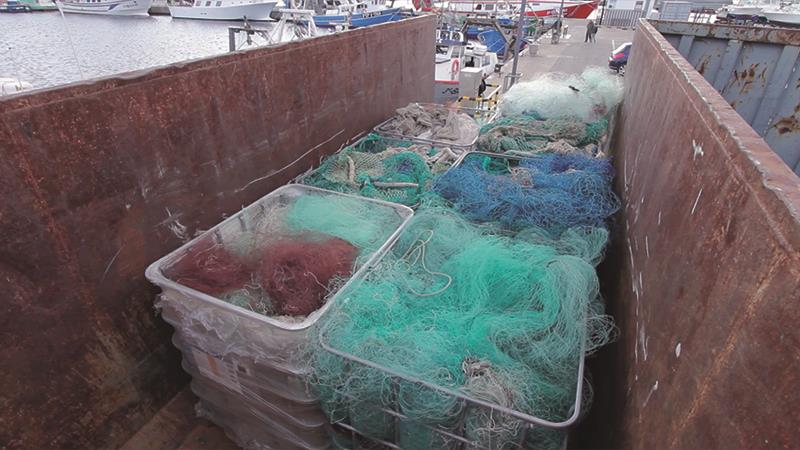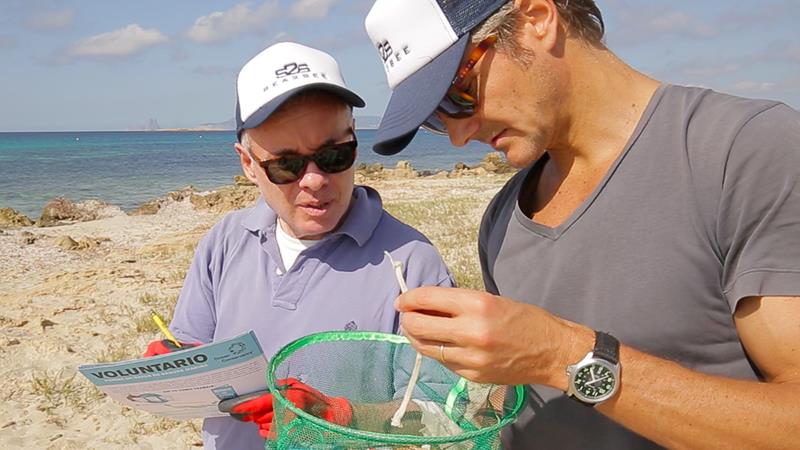In recent years the environmental problems caused by plastic waste in the natural world have gained mainstream recognition. Damage to marine ecosystems have been particularly high profile with striking videos and images demonstrating the scale of the pollution helping to drive a shift in public awareness and opinion.
Given this situation, it seems likely that the vast majority of optical practices in the UK would find customers interested in Sea2See, a company that reclaims plastic waste from the oceans to make optical frames and sunglasses.
‘It started at the end of 2016,’ says Francois van den Abeele, founder of Sea2See. ‘Before that I had no background in optics but I spent a lot of time in Sub-Saharan Africa working on social causes and witnessed the problems of waste, recycling and contamination. I also used to work as a ship broker in the past and, living by the sea, I saw what was happening first hand. I wanted to play a part in helping to combat it.’
The statistics cited by van den Abeele demonstrate the scale of the problem.
‘Between eight and 10 million tonnes of plastic ends up in the ocean every year,’ he says. ‘That is 256 kilos per second.’
Van den Abeele spent time researching projects collecting and recycling plastic waste, as well as monitoring clothing companies like Patagonia which has made strides in reducing its environmental impact.
‘Patagonia do great things and also communicate it really well,’ he says. ‘Eventually I realised that in the optical world, which is a huge industry and a growing industry, a large proportion of the raw material used is plastic. So I thought maybe we can do something there. Plastic waste from fishing is a big problem, 27% of the plastic waste on European beaches comes from fishing activities. So I started getting in touch with recycling authorities in Spain [where van den Abeele is based], port authorities in Spain, and fisherman organisations to see what they were doing. I wanted to know if they were sensitive towards the cause, were they collecting the waste and what were they doing with the waste.’

Sea2See’s dockside recycling operation
Van den Abeele discovered that less than 1% of the plastic waste generated by fishing in Europe was being recycled.
‘So we started placing containers in the ports, signing collection agreements with the port authorities, fisherman brotherhoods and other parties, and we started collecting the waste. Today we are collecting around a tonne per day.’
The collected plastic is brought to a warehouse where Sea2See separates the waste into different types of plastic while collecting other materials such as rosewood and metal as well.
‘Once we have manually sorted out the plastics, we process it to bring it back to reusable raw materials in the form of little pellets. The pellets are then sent to Italy and manufactured into frames.’
Van den Abeele attributes his relatively smooth path through the complex world of optical manufacturing to a stroke of fortune.
‘I made a few phone calls and was told that Sea2See was a great story but that it wasn’t going to work. Then I got lucky and found a manufacturer who said they were happy to give it a go. So I went to Mido to meet them and shortly afterwards I flew from Barcelona to their factory with 20 kilos of recycled plastic. Soon we had three sunglass models and we started selling.’

Armed with quality products Sea2See rapidly picked up distributors across Northern Europe, buoyed by the endorsement of famous actors Javier Bardem and Penelope Cruz (pictured). As the company has grown, the product range has been extended with optical models now available.
‘Our first three models were classic shaped sunglass models in only three colours,’ says van den Abeele. ‘Then we started improving the way we produced them. The latest models are much more varied and have truly beautiful finishing. This year we have 10 optical models and 13 sunglass models in four or five different colours. The case and packaging provided with our frames are made from recycled cork and recycled cardboard.’

2019 promises to be a big year for Sea2See with plans in place to expand.
‘Now it is important for us to get more waste out of the ocean to recycle and I want to have more social impact too. The idea is to start collecting waste in Senegal, Tanzania, Gambia, in all these countries. Create more of an impact in these countries, create awareness. Source the raw material from the ports there and also give free glasses to people in these countries. For every pair of frames sold by an optician, we will finance a pair of glasses to people who can’t afford them.’
Van den Abeele is also currently finalising the financing of a dedicated recycling facility.
‘The recycled plastic we produce can be used in lots of places outside the optical world which should ultimately help us get more waste out of the sea. Within optics, at trade fairs I have met lots of people wanting to use the material. I don’t sell the raw material but we have done some collaborations, most recently with Huntsman of Saville Row, to explore its potential. Hopefully future collaborations will help us find lenses that are 100% sustainable. We’ve been looking for eco plant-based material or recycled material but it is not ready yet. There are some supposedly bio-lenses but if it was bio, you could eat it. It’s not bio, no plastic is bio.’
Irrespective of the amount of marine waste that Sea2See recycles, van den Abeele feels that the company’s biggest impact will be through raising awareness.

Sea2See founder Francois van den Abeele, right
‘I always say I’m not going to save the planet. I’m doing a little bit but sustainable glasses will not save the planet. The people that wear them will. I’ve just created a tool, at an affordable price given the quality of the product, to create awareness and I think that’s how you really create change. Some fashion designers make a one-off dress which is sustainable, but no one can afford so it changes nothing. We retail between £85 and £130. You tell the story behind the frames to people and they think, it’s not that expensive and it is good quality and 100% Made in Italy. And then they are part of this movement.’


